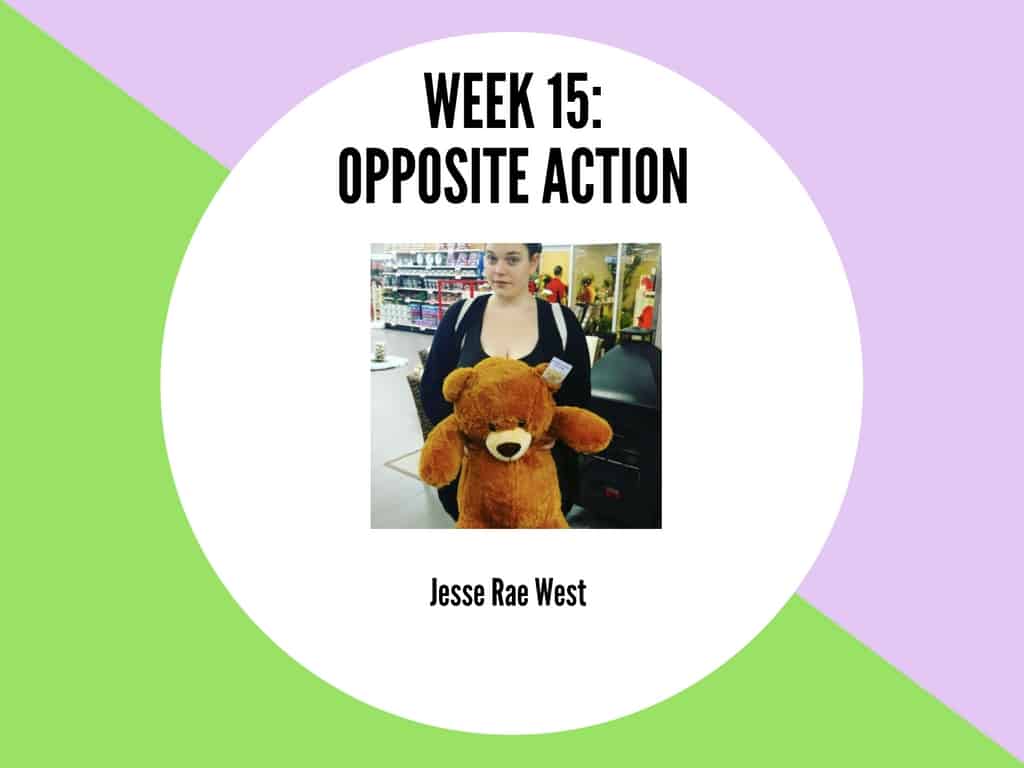I haven’t had a lot of unoccupied time lately. In the past week, I’ve co-produced a comedy tour and left the apartment that I had shared with my ex-partner. Endings are hard for me, but I’m proud of the progress I’ve made, specifically around my ability to cope with loss and change. I may have set a few love notes on fire and ate pizza for dinner two days in a row, but I packed, moved and have started my new life with a sense of emotional stability.
Part of having Borderline Personality Disorder is feeling things in extremes, and until I started receiving Dialectical Behaviour Therapy, everything felt too intense – good things and bad. Lately my therapy group has been focusing on building skills around Opposite Action. These skills have allowed me to experience emotions in less extreme ways.
Some things require intense emotional reactions, but most things don’t. Using Opposite Actions can be helpful when your emotions do not fit reality or when acting on your emotions is not effective. It’s hard at first, but it is possible to change your emotions by acting opposite to your urges. When you approach things you are scared of instead of avoiding them, it builds tolerance and confidence. When you engage in activity when you’re depressed instead of isolating or withdrawing yourself, your emotional state will improve because you are distracted.
If you’re like me and get caught in ruminations and repetitive thoughts, this tool will be especially helpful for you. To start, you have to identify the emotion you want to change. It could be sadness, fear, anger, love etc. This can be hard for a lot of people and I recommend Googling a list of emotions so you can precisely label what it is you are feeling.
Make sure that what you’re feeling is justified. An emotion is justified when it fits reality. An example of this is when you get cut off while driving. Feeling irritation makes sense, but having road rage does not. If what you are feeling is in fact justified, write out a list of your action urges. If the situation involves doing something that provokes anxiety in you, approaching the issue and getting it over with will probably create a sense of peace and strength within yourself. Identify what your “in-the-moment urge” is and then do the opposite.
Another example is love. Love is justified when it enhances your life. It’s even justified to feel heartbreak but sometimes, when it isn’t reciprocated for example, it’s most effective to move on and attempt to change your feelings of love into something less painful and more neutral. Even when you feel as though you cannot stop loving someone, it is possible.
I know it sounds too simple to work, but it’s been one of the best tools I’ve had while healing from heartbreak. I was so unwell when I was diagnosed with BPD, and I did not believe that I could survive heartbreak too.
Avoiding those who evoke negative emotions in me, distracting myself when I can’t avoid them, and reminding myself of why my feelings of love aren’t justified is how I’ve been coping. Avoiding contact, not expressing love and being aware of things like body language if I’m around a triggering person is how I act opposite to my urges. It may be hard to change an intense emotion like sadness due to a break up, but you can always start small, in fact I recommend it.



 Follow Us On Instagram
Follow Us On Instagram
